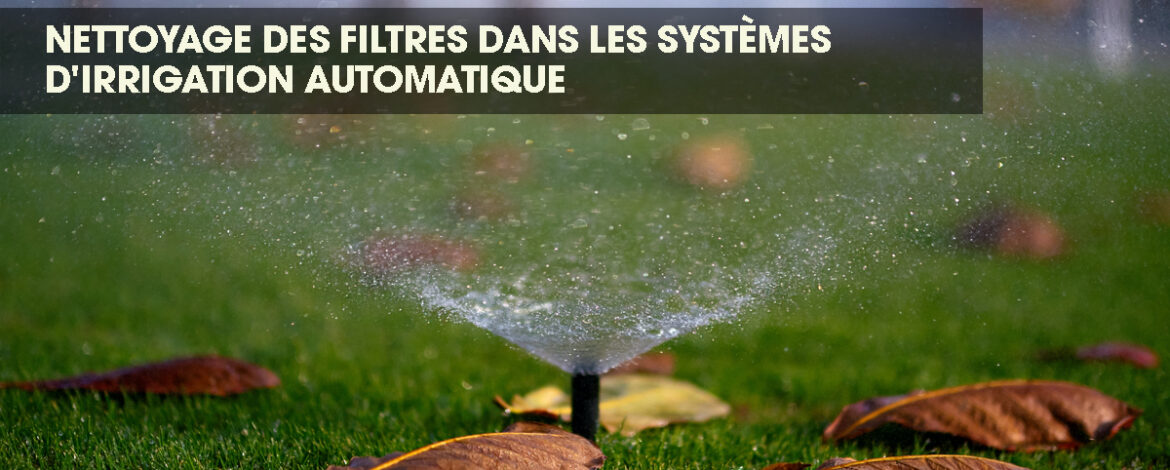Cleaning filters in automatic irrigation systems, especially in domestic systems, is essential to ensure the efficiency and durability of the equipment. These filters require regular maintenance to prevent obstructions that could damage the system and to guarantee efficient water use, a resource that is becoming increasingly precious, particularly in times of increased rainfall. Below, we will explore how and why it is important to keep filters clean, following the manufacturer’s recommendations.
The Importance of Cleaning Filters
In domestic automatic irrigation systems, sprinkler filters play a crucial role. They prevent particles and sediments from entering pipes and nozzles. Although these filters are smaller, they are vital for maintaining a constant water flow and avoiding damage. Regular cleaning is necessary. Dirt buildup reduces water flow, affects irrigation uniformity, and, in the worst cases, causes blockages that damage the system. Keeping filters in optimal condition is key to the longevity of irrigation and drainage systems, especially in areas with frequent rainfall.
How Often Should Filters Be Cleaned?
The frequency of filter cleaning in automatic irrigation systems depends on several factors, including water quality, the type of system, and the manufacturer’s specific recommendations. Generally, it’s advisable to inspect and clean filters at the start and end of the irrigation season. However, in areas with high water turbidity or during heavy rainfall periods, as recently experienced, it may be necessary to increase the frequency of cleanings.
Filter Cleaning Process
To clean sprinkler filters correctly, follow the manufacturer’s instructions for your system. Here’s a general process:
- System Disconnection: Before starting, disconnect the irrigation system to avoid potential accidents.
- Filter Removal: Locate the filter in your irrigation system, carefully disassemble the necessary parts, and remove the filter.
- Filter Cleaning: Use pressurized water to remove trapped dirt and sediments. If the filter is very dirty, soak it in a recommended cleaning solution.
- Filter Inspection: After cleaning, inspect the filter to ensure it is not damaged. If you find any breaks or wear, replace the filter.
- Reinstallation: Once cleaned and inspected, reinstall the filter and ensure it is properly adjusted before reactivating the system.
Benefits of Regular Filter Cleaning
Regular cleaning of filters in domestic automatic irrigation systems offers multiple benefits. It ensures a constant, uniform water flow, contributing to more effective and efficient irrigation. It also prevents potential system damage, reducing repair costs and prolonging the lifespan of your irrigation and drainage system. In a context of increased rainfall, a clean, unobstructed system is essential for managing water efficiently, avoiding waste, and maximizing its use.
At Vaquam, we clean filters in irrigation systems, ensuring each service follows the specific regulations of each municipality. We comply with provincial law in cities like Montreal, Terrebonne, Brossard, Laval, Longueuil, Candiac, and Roussillon, among others, protecting both our clients and the community at large.


